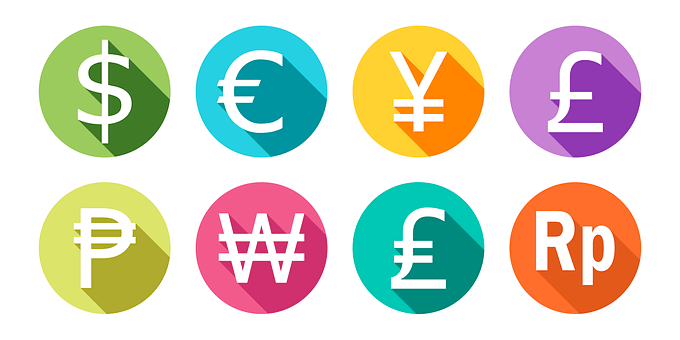
Since years back when the gold standard was abandoned as a monetary system, the floating exchange rate system dominates today’s world as the main currency system. But without delving so deep into the specifics, you most likely know that some currencies are stronger than others. On this note, you also know that the tables can always turn due to various factors, and the previously weaker currency becomes the stronger one. Truth is, the values of different currencies keep on fluctuating by the minute, which is the major reason the forex market exists. However, it’s not the forex markets alone that are affected by these changes in currency values. The effects of currency exchange rate fluctuations are far-reaching, affecting other trading sectors, businesses, consumers, governments, and the global economy at large hence winner55
The strength of a currency against others may be determined by a wide range of factors, including economic growth, supply/demand, inflation, capital flows, and political stability, among others. As you may have deduced, most of these factors are subject to change from time to time, which is virtually why currencies fluctuate. This means that if you’re trading forex or making purchases in a different currency from yours, you’ll want to find out the exchange rate at that particular moment before doing the transaction to avoid losses. In simpler terms, if you want to buy Euros or transact, but you have a different currency, you’ll want to find out the current exchange rate to Euro from pounds or the particular currency you’re holding. And thanks to the internet, you can easily stay in the know using a good currency conversion tool online. It’s that easy these days!
Now, let’s take a look at the various ways currency fluctuations impact the global economy, shall we?
Trade
Trade is one of the areas affected by currency fluctuations, and in this case, international trade, which basically refers to a country’s imports and exports. Now, when a country’s currency becomes weaker, importation tends to become more expensive. Conversely, the country is forced to devise ways to export more than they import. This also greatly affects traders in the export business, since they’re either forced to sell their merchandise to their consumers abroad at a lower price than they previously did. But then again, your business will remain competitive in the international markets if you manage to maintain your customers despite your currency’s depreciation. On the other hand, when your currency grows stronger as an export business owner, it reduces your competitiveness in international markets, as imports become cheaper. This tends to happen everywhere across the globe and as far as trade is concerned, we can say that currency fluctuation is a double-edged cutting sword.
Economic Growth
A country’s economic growth is determined by a measure called Gross Domestic Product (GDP), which according to Investopedia, refers to the “total monetary value of finished products/services produced within a country is a specified time period”. In a nutshell, it basically depicts a country’s economic health and how its economic growth looks like. GDP is composed of various measures, including Consumer spending, Capital investment, Government spending, exports, and imports, giving the formula “GDP=C+I+G+(X-M)”. As we’ve seen above, currency fluctuations affect exportation and importation, which also means that it affects GDP. This means that the countries with the highest net exports (X-M) have high GDPs.
Economic Volatility
Looking at it from a broader perspective, currency fluctuations affect both local and foreign trade (the importer and the exporter). And when currencies fluctuate a lot, markets in various sectors of economies become highly unpredictable. More often than not, in many markets such as securities exchange, volatility means higher risks, without the certainty of getting higher rewards. A business can easily feel like a huge gamble. However, this volatility is not always a bad thing, especially in markets such as currency exchange (Forex Trade). This also means that traders and investors in international markets have to be extremely careful where they put their investments. They need to stay up-to-date with currency markets as well as the news about the countries they regularly deal with – which brings us to the next important point.
Foreign Investments

Foreign investors inject capital into a country’s economy in various ways. One of these ways is through foreign direct investment (FDI), where they can buy stakes in existing companies overseas or establish their own. They can also trade securities, in which part of their profits remain in the economy they’re doing business in. However, foreign investors often shy away from investing in countries whose currency is unstable, highly unpredictable or fluctuates a lot.
Inflation
How much did you need to buy a basket of fruits in your country, say 5 years ago? Well, how much can you spend on the same basket of fruits today? Has the price doubled, or is the difference just a few bucks? Simply put, inflation refers to the rate at which price increases, relative to a particular set of goods or services within a particular time period. Well, currency fluctuation affects economies, especially those that heavily rely on imports. When a currency depreciates, the measure of selected goods or services a unit of that currency can buy from the international market often decreases, and vice versa. Inflation increases and decreases when currencies grow weaker and stronger respectively, and it often affects other areas of the said economy as well.

Lending and Interest Rates
Currency fluctuation also affects lending and interest rates. This is basically because exchange rates have an impact on a country’s monetary policy, and many central banks set standards based on their currency’s performance on the international markets. Basically, stronger currencies lead to tighter monetary policies and higher interest rates, a phenomenon that often discourages lending and may affect a wide variety of sectors, including stocks. This often encourages foreign investors in the local economy.

Currency fluctuations affect our lives in many ways, directly and indirectly. They affect our governments, which means that they also affect our taxes. They affect our businesses, especially those who depend on importation and exportation. Depending on whether your domestic currency appreciates or declines, some of these effects are negative, whereas others are positive. The above are a few examples of how the global economy is affected when currency values fluctuate.
Advertise with the mоѕt vіѕіtеd nеwѕ ѕіtе іn Antigua!
We offer fully customizable and flexible digital marketing packages.
Contact us at [email protected]















